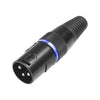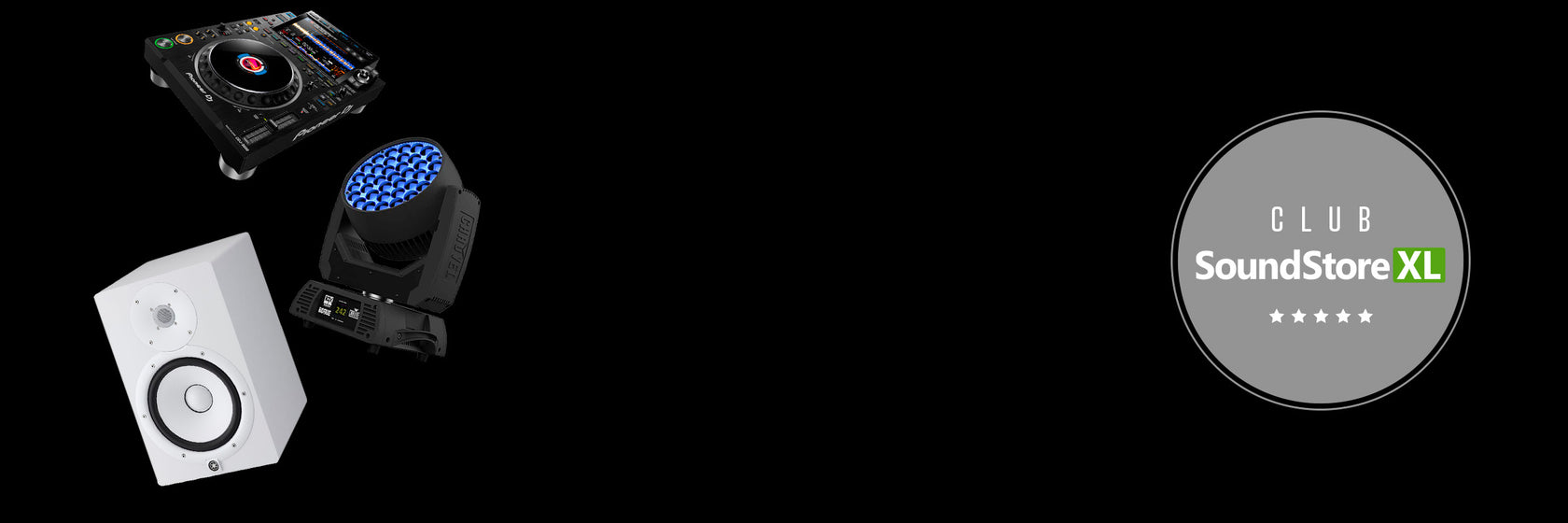DMX Cables
(28 products)


- €1,00 discount
- €13,55 discount
- €33,88 discount
- €14,52 discount
- €14,52 discount
Read about DMX Cables
Read about DMX Cables
DMX Cable Guide
A DMX cable is an essential component in any professional lighting control system. DMX cables are used to transmit data between different types of fixtures that can be controlled via a DMX controller. Proper use and maintenance of DMX cables are crucial to ensure a stable and reliable lighting setup, whether you are working with stage lighting, theatre, or large-scale events. In this guide, we cover almost everything you need to know about DMX cables, including cable types, installation, troubleshooting, and future technologies such as wireless DMX.
What is a DMX Cable?
A DMX cable is designed to transmit digital signals within lighting control systems. DMX stands for Digital Multiplex, a protocol that makes it possible to control multiple fixtures from a single controller. DMX cables are built to transfer DMX512 signals, the industry standard for lighting control. This means that a DMX cable can carry signals for up to 512 channels, providing great flexibility in lighting setups.
How Does a DMX Cable Work?
DMX cables work by transmitting digital signals from a controller to lighting equipment. Signal quality depends on the cable’s construction, including the number of pins (3-pin or 5-pin) and the cable length.
-
3-pin DMX cables are most common in smaller setups.
-
5-pin DMX cables are typically used in more complex systems where additional data transmission is required.
Choosing the right DMX cable is key to ensuring that the signal reaches the fixtures without loss or interference.
Difference Between 3-pin and 5-pin DMX Cables
The difference lies in the number of conductors inside the cable.
-
3-pin DMX cables use three conductors for DMX signal transmission and grounding.
-
5-pin DMX cables have two extra conductors that can be used for future expansion or to transmit additional data such as audio or feedback signals.
Which type you choose depends on your equipment and setup requirements.
DMX Cables and DMX Splitters
DMX splitters are devices that divide the signal from a DMX cable so it can be sent to multiple fixtures. This is particularly useful in large setups where many units need to be controlled at once. A splitter distributes the signal without degrading its quality. Using high-quality DMX cables with splitters is essential to maintain signal stability and avoid interference.
DMX Cable Applications
A DMX cable functions as a control cable between fixtures operated via the DMX protocol (also known as DMX512). Selecting the right cable is crucial for a successful lighting setup. Whether you are working with simple or advanced systems, understanding DMX cables, splitters, and wireless solutions will help you achieve a reliable and trouble-free performance. Always maintain your cables properly and choose quality products to avoid unexpected issues during events.
DMX 512 Cables for Lighting Control
In stage, theatre, and concert environments, DMX cables are used in almost every lighting setup. One of the most important technical aspects is the cable’s impedance, which should be 110–120 ohms.
Some may be tempted to use a regular XLR cable as a replacement since they use the same connector type. However, XLR audio cables are not designed for DMX signals and may cause problems if their impedance does not match 110–120 ohms.
That is why our clear recommendation is: Always choose proper, high-quality DMX cables to ensure reliable lighting control.
Standard DMX cables are available with both 3-pin and 5-pin XLR connectors. While the connectors look the same as those on XLR audio cables, the critical difference is in the impedance - DMX requires 110 ohms. Choosing true DMX cables ensures your lighting setup performs without issues.





























































































